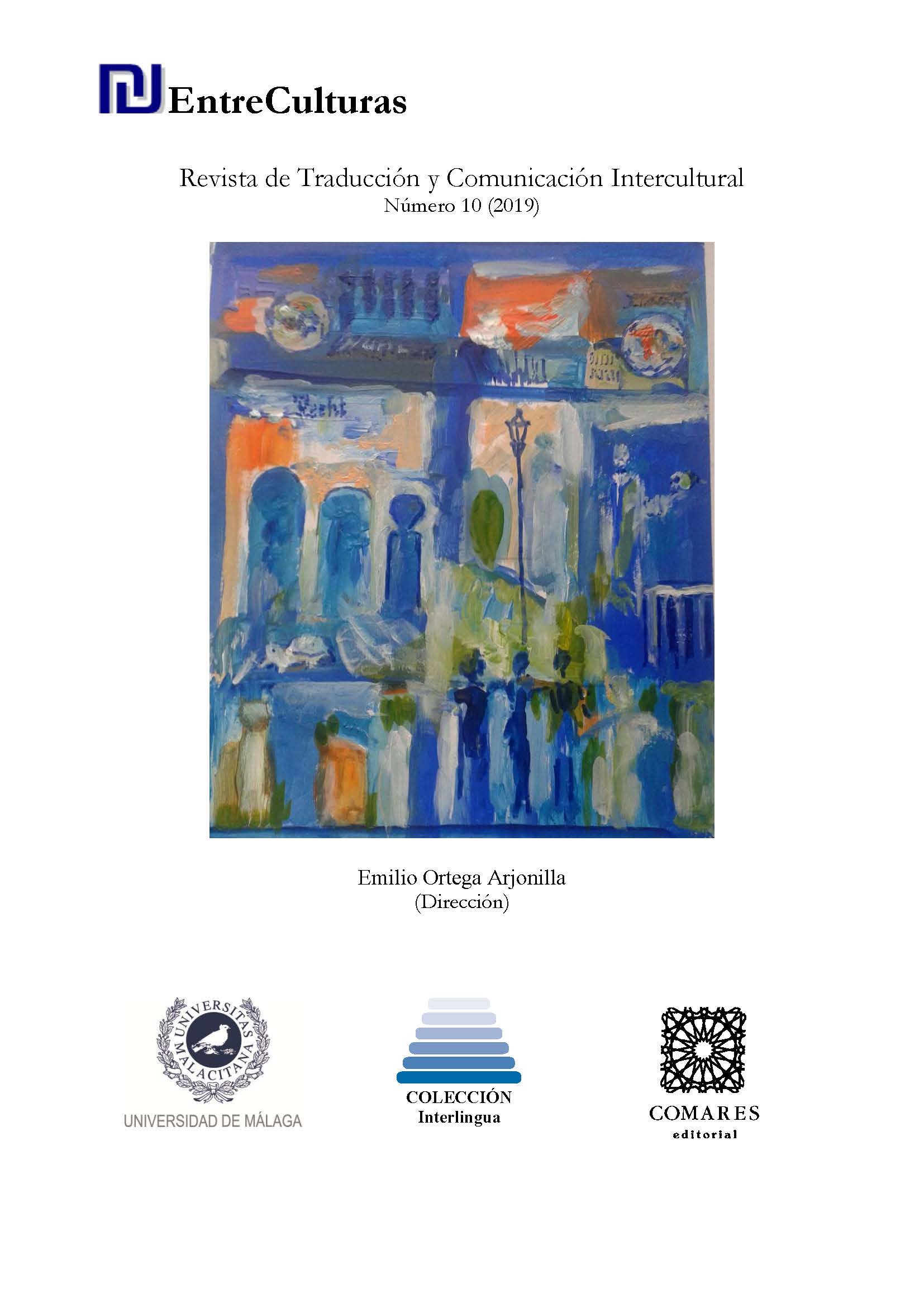Translation for dubbing of African American Vernacular: the case of The Corner (I): theoretical framework and context
DOI:
https://doi.org/10.24310/Entreculturasertci.v1i10.9660Keywords:
African American Vernacular, linguistic variation, The Corner, standard SpanishAbstract
The aim of this article is to analyze translation of the linguistic variation in the TV show The Corner. Throughout this study, we will take into account what must be considered for the translation of the linguistic variation; the speech variety which is used by the speakers in the show – the African American Vernacular – and translation for dubbing. Finally, we analyze some cases from the dubbed version and how the series translator has faced them and offer some translation suggestions for particularly relevant cases. Our conclusion is that the main difficulty of dubbing texts with a strong linguistic variation is their cultural idiosyncrasy and ethnical identity, hard to translate into languages from non-segregated cultures.
Downloads
Metrics
References
Cambrigde University Press (2008): Cambridge online dictionary [en línea]: http://dictionary.cambridge.org/es/.
Chaume, Frederic (2012): Audiovisual translation: Dubbing. Manchester, St. Jerome Publishing.
Marset, Mabel Richart (2009): La alegría de transformar. Valencia, Tirant Lo Blanch.
Martin, Sarah. et al. (1998): African-American English: Structure, history and use. New York, Routledge.
Mayoral, Roberto (1999): Traducción de la variación lingüística. Soria, Diputación provincial de Soria.
Merriam-Webster Dictionary [en línea]: https://www.merriam-webster.com/.
Mufwene, Salikoko (2014): «The English origins of African American Vernacular English: What Edgar W. Schneider has taught us» en Buschfeld, Sarah. et al.: The Evolution of Englishes. The Dynamic Model and beyond. Amsterdam, John Benjamins Publishing Company, [en línea]: http://mufwene.uchicago.edu/publications/ENGLISH%20ORIGINS%20OF%20AAE%20— %20FEST%20FOR%20EDGAR%20SCHNEIDER%202014.pdf. [Consulta: 2 de febrero de 2018].
Real Academia Española (2001): Diccionario de la lengua española. (22.ª ed.) [en línea]. http://dle.rae.es/?w=diccionario.
Seguinot, Candance (1996): Accounting for variability in translation. London, Sage Publications. Urban Dictionary [en línea]: http://www.urbandictionary.com.
Villena Ponsoda, Juan Andrés (2016): «Variación lingüística y traducción: por qué el traductor necesita del variacionista» en Caprara, Giovanni, Emilio Ortega y Juan Andrés Villena: Variación lingüística, traducción y cultura: De la conceptualización a la práctica profesional. New York, Peter Lang.
Wolfram, Walt y Natalie Schilling-Estes (1998): «American English: Dialects and Variation» en Trudgill, Peter: Language in Society. Friburgo, Blackwell Publishing.
Wolfram, Walt y Benjamin Torbert, (2006): «Bridging the Great Divide (African American English)» en Wolfram, Walt y Ben Ward: American Voices: How dialects differ from coast to coast. Oxford, Blackwell Publishing.
Wolfram, Walt (2004): The grammar of urban African American Vernacular [en línea]: http://citeseerx.ist.psu.edu/viewdoc/summary?doi=10.1.1.516.25. [Consulta: 2 de febrero de 2018].
Downloads
Published
How to Cite
Issue
Section
License
All contents published in Entre culturas. Revista de traducción y comunicación intercultural are protected under the Creative Commons Attribution-NonCommercial-ShareAlike 4.0 International (CC BY-NC-SA 4.0) license. All about this license is available in the following link: <http://creativecommons.org/licenses/by-nc-sa/4.0>
Users can copy, use, redistribute, share and exhibit publicly as long as:
- The original source and authorship of the material are cited (Journal, Publisher and URL of the work).
- It is not used for comercial purposes.
- The existence of the license and its especifications are mentioned.
There are two sets of authors’ rights: moral and property rights. Moral rights are perpetual prerogatives, unrenounceable, not-transferable, unalienable, imprescriptible and inembargable. According to authors’ rights legislation, Entreculturas. Revista de traducción y comunicación intercultural recognizes and respects authors moral rights, as well as the ownership of property rights, which will be transferred to University of Malaga in open access. The property rights are referred to the benefits that are gained by the use or the dissemination of works. Entreculturas. Revista de traducción y comunicación intercultural is published in an open access form and it is exclusively licenced by any means for doing or authorising distribution, dissemination, reproduction, , adaptation, translation or arrangement of works.
Authors are responsable for obtaining the necessary permission to use copyrighted images.





7.png)
